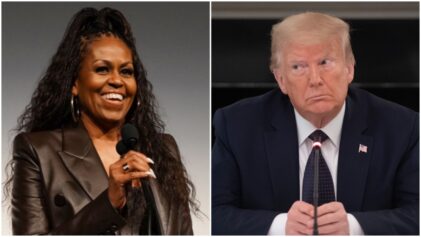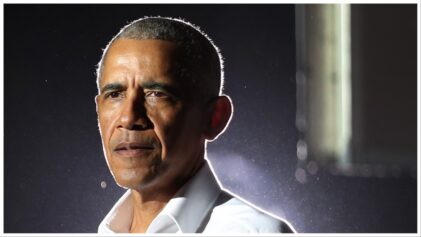If 2012 presidential candidate Mitt Romney had created enough enthusiasm among white voters to get them to the polls in the same numbers as in 2004 when George Bush was re-elected, he would have won the battleground states of Ohio, Pennsylvania, Virginia, Florida and Colorado and pulled out a narrow victory over President Obama, according to an analysis conducted for The Associated Press.
The AP analysis, done by demographer William H. Frey of the Brookings Institution, showed that in the 2012 election, blacks for the first time voted at a higher rate than whites, handing a re-election victory to Obama.
Frey’s analysis raises questions about whether Obama’s re-election truly marks a harbinger of the new electoral power of non-whites, or if it was a reflection of an extraordinarily weak Republican challenger.
“The 2012 data suggest Romney was a particularly weak GOP candidate, unable to motivate white voters, let alone attract significant black or Latino support,” the AP said in its analysis. “Obama’s personal appeal and the slowly improving economy helped overcome doubts and spur record levels of minority voters in a way that may not be easily replicated for Democrats soon…Romney would have erased Obama’s nearly 5 million-vote victory margin and narrowly won the popular vote if voters had turned out as they did in 2004.”
“The 2012 turnout is a milestone for blacks and a huge potential turning point,” Andra Gillespie, a political science professor at Emory University who has written extensively on black politicians, told the AP. “What it suggests is that there is an `Obama effect,’ where people were motivated to support Barack Obama. But it also means that black turnout may not always be higher, if future races aren’t as salient.”
While the increasing Latino turnout is spurred by the growth in the population, the rise in voting for the slow-growing black population is due to higher turnout. Blacks make up 12 percent of the share of eligible voters, but in 2012 represented 13 percent of the total votes cast — a repeat of 2008, when blacks “outperformed” their eligible voter share for the first time.
While white voters also outperformed their eligible vote share, it was by a much lower rate than in the past. In 2012, whites represented 72 percent of total votes cast, compared to an eligible voter share of 71.1 percent. As recently as 2004, according to the analysis, whites typically outperformed their eligible vote share by at least 2 percentage points.
Latinos now make up 17 percent of the population but 11 percent of eligible voters because their population is younger and they have lower rates of citizenship and voter registration. In 2012, they represented just 10 percent of total 2012 votes cast. Latinos are projected to surpass the share of eligible black voters by 2024, when each group will be roughly 13 percent. At that time, 1 in 3 eligible voters will be nonwhite.
And in 2026, when nearly 11 million immigrants here illegally become eligible for U.S. citizenship, the total Latino share of voters could jump to as high as 16 percent. If that happens, the share of eligible white voters could shrink to less than 64 percent.
“The 2008 election was the first year when the minority vote was important to electing a U.S. president. By 2024, their vote will be essential to victory,” Frey said. “Democrats will be looking at a landslide going into 2028 if the new Hispanic voters continue to favor Democrats.”
Blacks had high turnouts in 2012 despite having a higher burden to cast a ballot. According to a poll conducted by Hart Research immediately after the election, 22 percent of African-Americans waited 30 minutes or more to vote, compared to just 9 percent of white voters.
In addition, black youth were far more likely to be asked to show ID, a study by professors at the University of Chicago and Washington University in St. Louis found, and many did not even try to vote because they lacked the required identification.
Whit Ayres, a GOP consultant who is advising GOP Sen. Marco Rubio of Florida, a possible 2016 presidential contender, told the AP the last election reaffirmed that the Republican Party needs “a new message, a new messenger and a new tone.”
“It remains to be seen how successful Democrats are if you don’t have Barack Obama at the top of the ticket,” he said.


